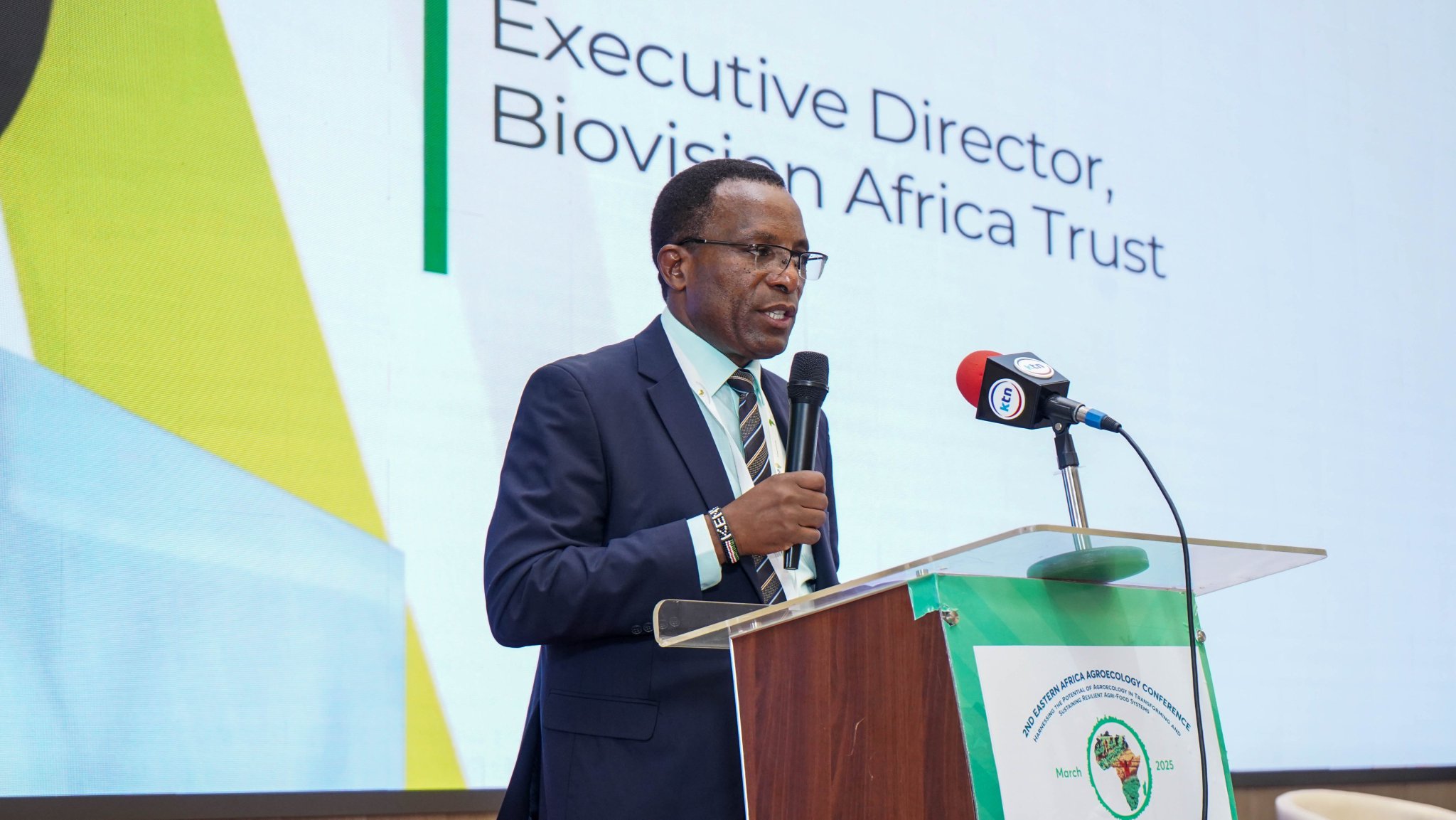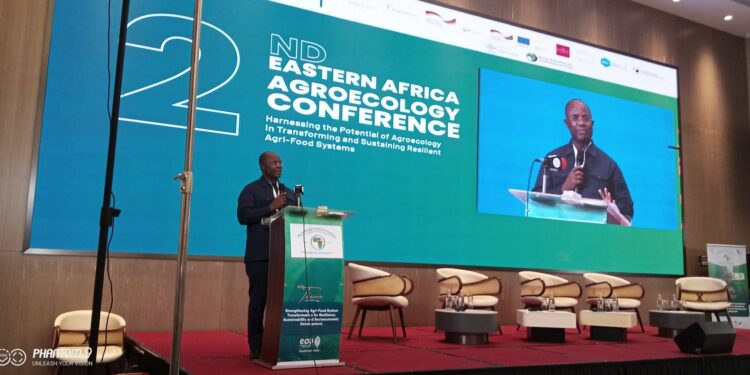Uganda is in the final stages of formulating its National Agroecology Strategy, a groundbreaking initiative aimed at transforming the country’s agricultural and food systems.
This was revealed by Hon. Maj. (Rtd) Kyakulaga Fred Bwino, Uganda’s State Minister for Agriculture, during the official opening of the 2nd Eastern Africa Agroecology Conference at Argyle Grand Hotel, Nairobi, Kenya.
The new strategy will streamline coordination among agroecology stakeholders to promote sustainable agricultural practices. It aims to enhance climate resilience, strengthen food security, and improve nutrition by integrating long-term strategies that align with Uganda’s agricultural policy framework.
The three-day conference, themed “Strengthening Agri-Food System Transformation for Resilience, Sustainability, and Socio-Economic Development,” brought together policymakers, government representatives, consumer associations, academia, research institutions, farmers, agroecology practitioners, private sector players, and donor agencies from within and outside Africa.
Sponsored by stakeholders like Biovision Africa Trust, Alliance for Food Sovereignty in Africa (AFSA) and others, it is tailored toward motivating key stakeholders to invest in interventions that transform current unsustainabe food systems, by transitioning towards more environmentaly friendly soutions through harnessing the potential of agroecology in transforming and sustaining resilient agri-food systems.
During his address, Hon. Bwino emphasized Uganda’s commitment to institutionalizing agroecology, stating: “We have a policy established in consultation with the people in 2019, and as we speak, we are reviewing that policy. We are in the advanced stages of formulating a National Agroecology Strategy to operationalize this policy. In our budgeting systems, we must ensure provisions for promoting agroecology.”
He further stressed the urgent need for governments to establish enabling frameworks to support agroecology, citing its immense potential in climate change adaptation, soil health restoration and carbon sequestration.

Kenya’s Progress in Sustainable Agriculture
Dr. Christopher Wanga, Senior Public Officer in Kenya’s Ministry of Agriculture, Livestock, and Fisheries, shared Kenya’s progress in sustainable agriculture, and encouraged other regional governments to follow suit.
He highlighted efforts to scale up integrated pest management, promote biological pest control, and implement conservation agriculture practices such as minimum tillage, cover cropping, mulching, and crop rotation.
“Kenya was the only country in the region on track to meet the ‘Ending Hunger’ indicator target in the third biannual report, a testament to our government’s commitment to fostering a thriving agricultural sector.”
Dr. David Amudavi, Executive Director of Biovision Africa Trust, called for urgent action to address the escalating environmental challenges threatening food production and human well-being across Africa.
“The degradation of our ecosystems and biodiversity loss is not just an environmental concern—it is a direct threat to food production and human well-being. Farmers can no longer predict the rains as they once did. Climate change is no longer a future threat—it is our daily reality.”” – Dr. David Amudavi, Executive Director, Biovision Africa Trust.
Global Concerns Over Unsustainable Food Systems:
The urgency of transformation to agroecology was echoed by Markus Arbenz, Senior Scientist & Consultant at Switzerland’s Research Institute of Organic Agriculture, who highlighted the alarming rise in non-communicable diseases which were previously rare but are now prevalent due to unsustainable food systems.
Citing research from the Stockholm Brazilian Institute, Arbenz noted that global soil degradation is accelerating, posing a significant threat to agricultural sustainability. He urged governments to senstize their respective populations to reduce dependence on synthetic fertilizers and pesticides, promote low-input farming, and support smallholder farmers to ensure food security.
With Sub-Saharan Africa’s population projected to reach 2.1 billion by 2050, experts warn that short-term fixes will not suffice.
The Food and Agriculture Organization (FAO) estimates that the number of undernourished people worldwide could increase by an additional 7.5 to 13 million in the coming years, further exacerbated by crises such as the Russia-Ukraine war, which has disrupted global food supply chains.
Arbenz suggests that agroecology presents a nature-friendly alternative that fosters resilient food systems and mitigates global food insecurity challenges.
Do you have a story in your community or an opinion to share with us: Email us at editorial@watchdoguganda.com













